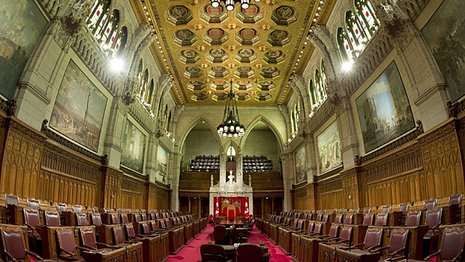Justin Trudeau failed to represent the agriculture industry with appointment of new senators
By Jennifer Jackson
Currently, there is not one Canadian sitting senator who has a detailed background in agriculture. Prime Minister Justin Trudeau recently appointed 6 new senators. The new senators have backgrounds in many industries. However, one of Canada’s most important industries – agriculture – has been in the dark.
Farm groups across the country are upset with the lack of representation.
“I think having that agricultural presence re-enforced in the Senate is critical. We need some people in the Senate with a knowledge of agricultural issues,” Ron Bonnett, president of the Canadian Federation of Agriculture, told iPolitics.
According to Bonnett, some of the 2,700 senator applications included members of the ag industry.

“When you’re looking at (having a) balance geographically, you’ve got to look at (both) rural and urban. You also have to take a look at the importance of the agricultural sector,” said Bonnett.
The Canadian agriculture and agri-food system (AAFS) is responsible for supplying one in eight jobs – and growing – based on a 2013 report by the Government of Canada. The AAFS also makes up 6.7 per cent of Canada’s GDP, contributing $108 billion to the economy.
“There’s going to be a huge learning curve for these people” without an agriculture background, Gary Stanford, president of the Grain Growers of Canada, told iPolitics. “I am quite concerned that that wasn’t put into the thought (around) some of the new senators appointed.”
JoAnne Buth, now the Chief Executive Officer for the Canadian International Grains Institute, was the last agriculture-educated sitting senator. She stepped down from the Senate in 2014.
The senate is now full. Trudeau began filling the 21 senator vacancies in October, and announced the final 6 senators Nov 2.